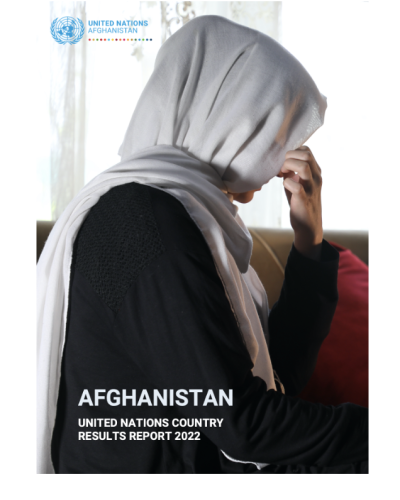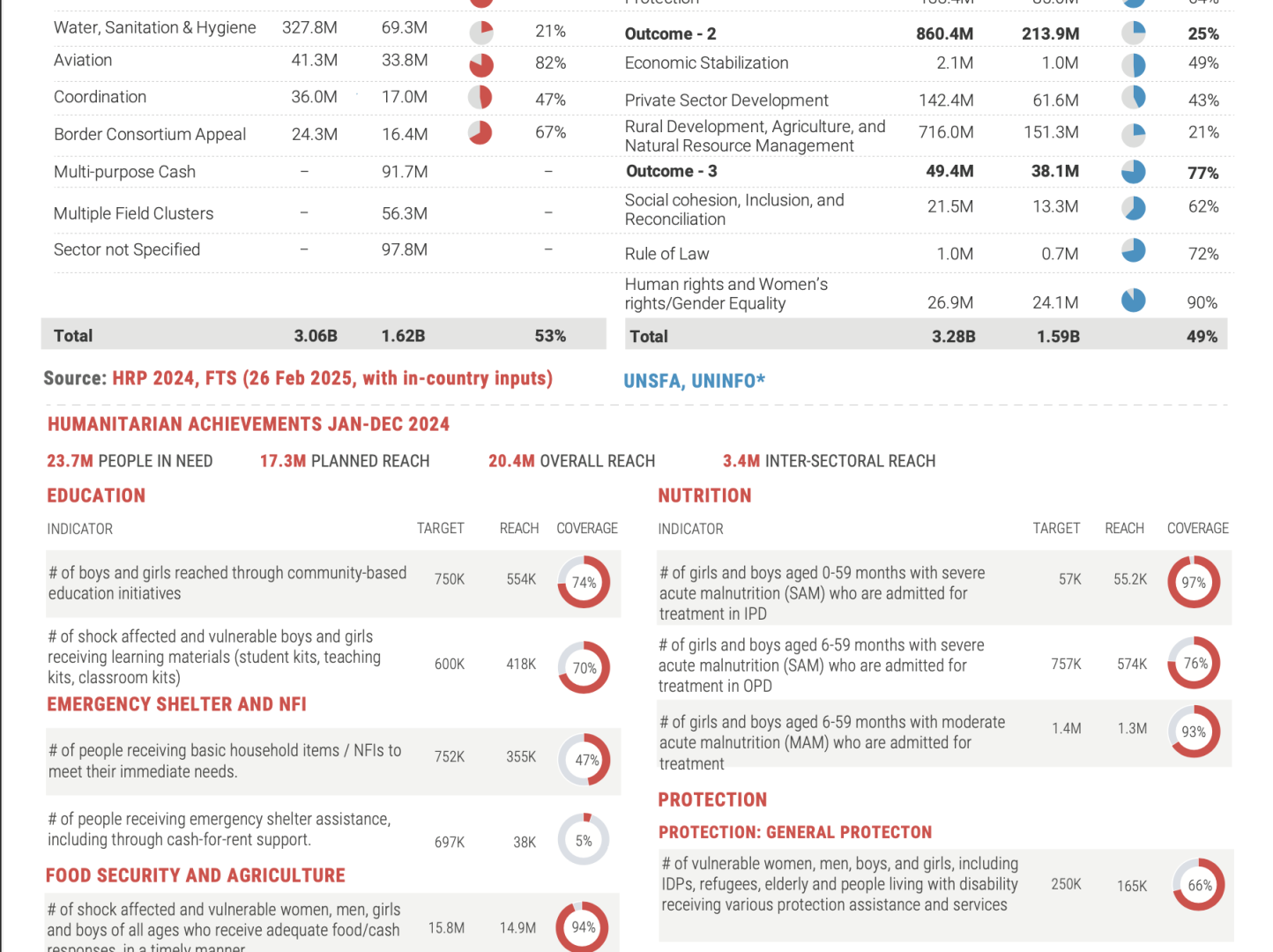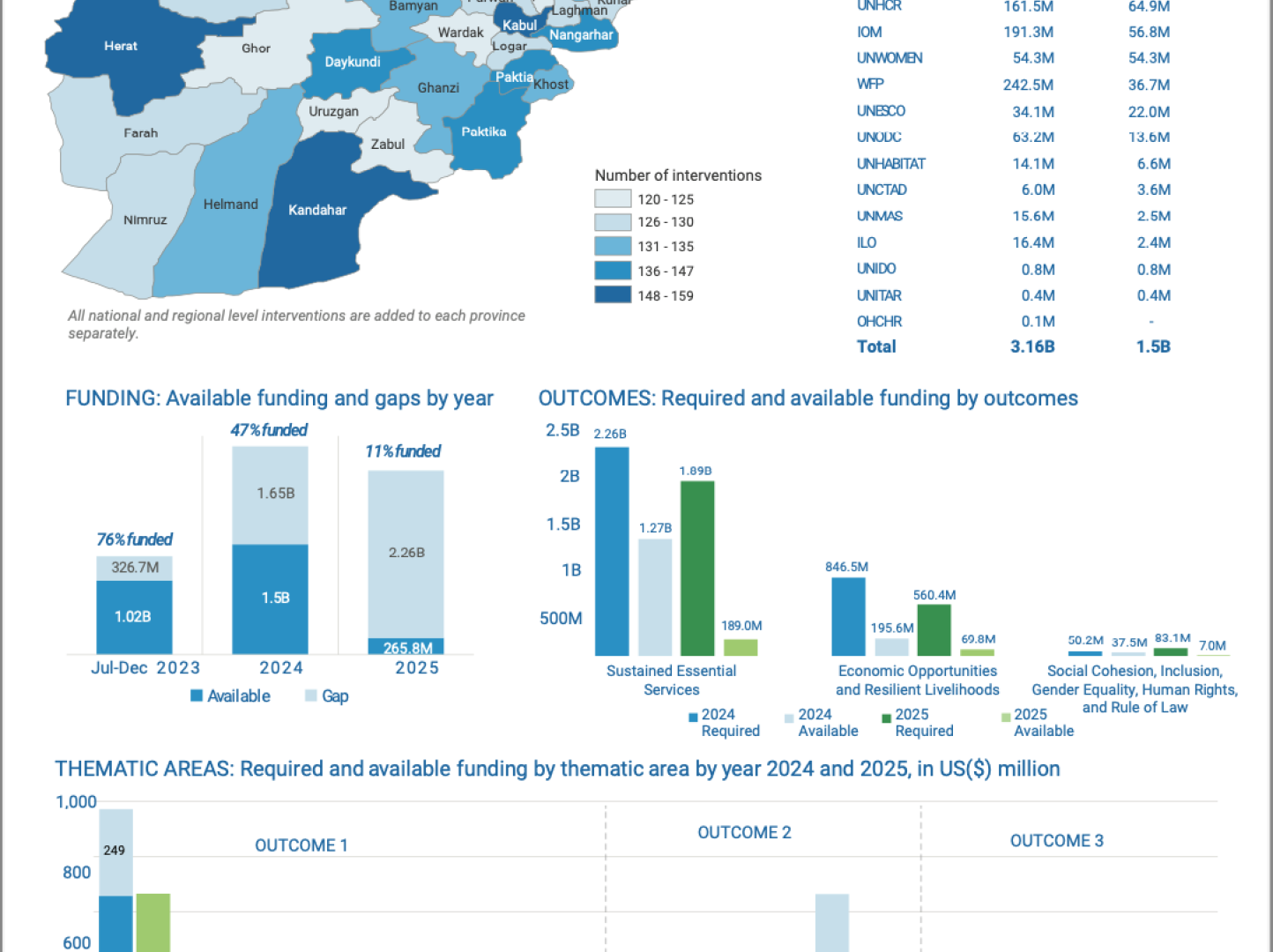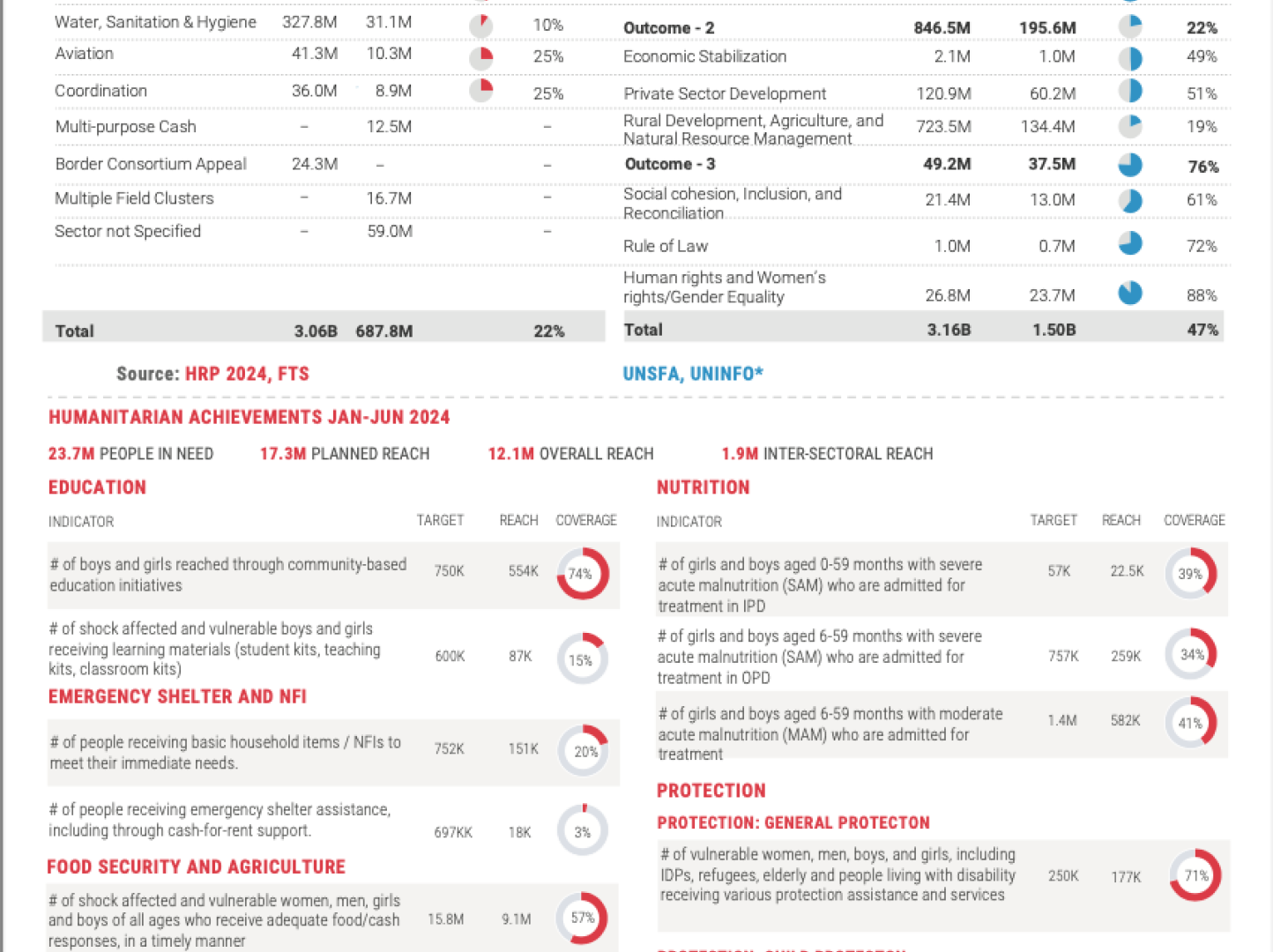2022 UN AFGHANISTAN ANNUAL RESULTS REPORT

The year 2022 was another extremely difficult year for the people of Afghanistan, as the country grappled with the compound effects of an ever-greater humanitarian emergency, profound economic crisis, political isolation, natural disasters, environmental shocks, and progressive rollback of human rights, especially for women and girls. The situation of ordinary Afghans deteriorated further and many of the economic, social and development gains made on the path toward the Sustainable Development Goals over the past two decades are being lost as a result.
This Annual Results Report presents the work of the United Nations for the people of Afghanistan in 2022. In the absence of an internationally recognized government, no approved framework of cooperation, international sanctions and a sudden halt to development funding on which the economy depended, the United Nations developed and implemented the Transitional Engagement Framework to guide our joint efforts to deliver lifesaving assistance to the people of Afghanistan in 2022. The three outcomes at the centre of the framework – saving lives, protecting livelihoods, and strengthening systems – reflect our commitment to the Afghan people even in these most difficult and unpredictable circumstances.
With 24.4 million people in need of humanitarian assistance and more than 9 in 10 living in poverty, the country is in the midst of a crisis on an unprecedented scale. With the support of donors, and the invaluable work of our partners on the ground, our response reached tens of millions of people across all provinces of Afghanistan with emergency food security, nutrition, healthcare, mine action, shelter, education, and protection services, and with support for families to survive and rebuild their livelihoods.
Our work in Afghanistan is not an endorsement of the mounting restrictions on human rights – and especially the rights of women – placed by the de facto authorities. The decision to effectively confine women to the home with a ban on girls accessing secondary and higher education, a ban on working in the non-governmental and other sectors, limitations on dress, free movement, and participation in public life are utterly unacceptable and will have huge adverse repercussions for the Afghan people, development, and economy. We will continue to advocate by all means possible for the immediate lifting of these restrictions, as well as those quelling dissent, shrinking civic space and limiting individual freedoms.
The challenges this year have shown us what is possible when we come together for the people of Afghanistan. I am grateful for the support of the international community and proud of the way the United Nations has responded to the rapidly changing circumstances – our determination to continue, to stay and deliver, to leave no one behind. Together, we stepped up to the challenge by delivering a major humanitarian response complemented by basic human needs assistance; we continuously reviewed needs and found innovative ways to overcome obstacles to reach the most vulnerable.
When I visited remote communities affected by earthquakes or drought and talked to people who have been displaced all over Afghanistan, I witnessed enormous appreciation of our assistance – providing relief, restoring housing, and restarting livelihoods. And, in every village I visited, the call for support for education and health services for all, and especially for girls, could not have been louder.
Thanks to the generous contributions of our donors and with the substantial support of our partners, the United Nations directly reached more than 22.9 million people – over half of the population – with essential services and humanitarian assistance, effectively preventing critical services from collapsing in the wake of the Taliban takeover of power in August 2021.
We will not stop there. With the trust placed in us comes responsibility not only to continue to deliver humanitarian aid but also to meet the basic needs of the Afghan people, support their development, and use our platform to advocate for their rights. The challenges have been extraordinary but our commitment to the people of Afghanistan will not waver. That is why we continue to hold dialogue with the de facto authorities, to open up access, challenge restrictions, overcome obstacles, support economic recovery, and find areas of joint interest to change the lives of Afghans for the better.
We are counting on your support.
Ramiz Alakbarov
Deputy Special Representative of the Secretary-General
United Nations Resident and Humanitarian Coordinator





















